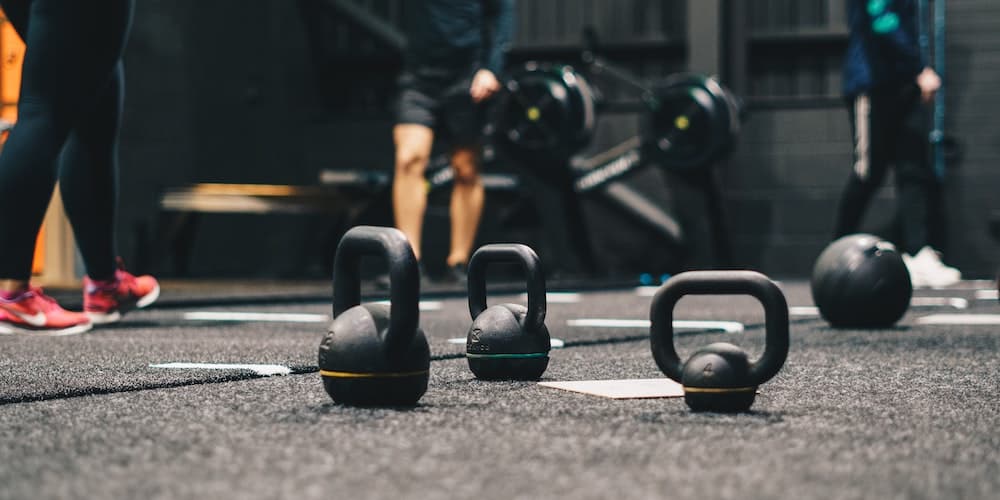Like BCAAs, creatine is an amino acid primarily found in muscles. Its role is the synthesis of energy for the initial muscle contractions during exertion.
It is synthesized in the kidneys, liver, and pancreas. Unlike BCAAs, the body can perfectly synthesize it, which makes it a non-essential amino acid.
The creatine found in eponymous dietary supplements is a chemical derivative made in a laboratory. It is found in liquid form, powder, or incorporated into foods.
It can also be found in powdered proteins like whey, gainers, or even in pre-workouts.
Its most widespread form is creatine monohydrate: simply because it is the one supported by the largest number of scientific studies.
Also read | The 3 best creatines according to a dietitian
Is creatine beneficial for bodybuilding?
An increase in muscle mass and strength
Many studies exist on creatine. In 2017, this meta-analysis examines the effects of creatine supplementation during resistance training, that is weight training, on gains in muscle mass and strength in older adults.
Results from studies of creatine supplementation compared to a placebo indicate a strong trend: creatine may play a role in gains in muscle mass and strength.
The benefit of creatine for bodybuilding
The benefit of creatine is the increase in strength and muscle mass. As shown by this study, creatine plays a role both in endogenous energy supply related to muscle contraction and in reducing inflammation associated with resistance training.
Strength gains are furthermore correlated with an increase in body weight related to gains in lean mass. More strength, more workload, greater hypertrophic effect.
How to use creatine for bodybuilding?
Follow the dosages
The suggested creatine dosage for effectiveness is 2 to 3 g per day and 5 g for larger body sizes (for example, a man 1.90 m tall and 100 kg).
Higher dosages used in several studies have not shown increased effects on strength or muscle mass gains. Therefore, there is no additional benefit if you exceed this dosage.
Read also | When is the best time to take creatine?
Skip the loading dose
From now on, the new recommendations for creatine use no longer mention this loading phase. You can therefore consume only 2 to 3 g (maximum 5 g) per day as stated above.
Prefer Creapure® creatine
Créapure® est a molecular form of micronized creatine monohydrate developed by the German laboratory AlzChem Trostberg GmbH.
Créapure® est en fait une marque déposée et un label qui découle d’un procédé de fabrication de monohydrate de créatine selon precise quality and manufacturing standards. This form is also based on scientific studies funded and conducted by the laboratory.

Is creatine dangerous?
Studies show few risks
Indeed, to refer back to our 2017 meta-analysis, very few adverse effects were recorded in study participants supplemented with creatine. Therefore, creatine is, in principle, a dietary supplement that does not pose health risks.
If you are considering taking this supplement as part of your strength-training routine, even if you are healthy, be sure to consult your doctor.
And as I like to remind you, start by perfectly balancing your daily diet before supplementing it with dietary supplements.
Side effects
However, some studies suggest side effects such as muscle cramps, kidney problems, liver problems, high blood pressure, and cardiovascular diseases.
Excessive creatine at high doses can also cause these issues. We do not have enough long-term scientific data to claim that this dietary supplement is completely risk-free.
Creatine is not considered a doping substance
For now, WADA (the World Anti‑Doping Agency) does not consider creatine to be a doping substance. You can therefore use it in high-level competitions and elite sports practice.
ANSES (the French Agency for Food, Environmental and Occupational Health & Safety), which is the reference body in France providing a scientific perspective on food safety, concluded in a report that creatine is indeed not a doping substance but does not have any authorized nutritional claims.
ANSES considers that there is not enough scientific evidence to demonstrate genuine positive effects on sports performance.
Where does creatine come from?
Creatine was discovered in 1832 by a French chemist. Michel Chevreul discovered its role in muscle function by comparing wild foxes to foxes raised in captivity.
Captive foxes had lower intramuscular creatine levels than wild foxes, indicating that lifestyle affects these levels.
Research intensified in the 1970s and 1980s, showing that creatine may play a role in sports performance. It was in the 1990s that the first dietary supplements appeared on the market, based on these studies.
My final tips
💡 Should you take creatine while doing weight training?
Creatine is a dietary supplement that can be very useful for goals of gaining muscle mass and developing strength. With appropriate training and a high-calorie, high-protein diet, you’ll give yourself the best chance of reaching your goals.
💡 How long should you take creatine for muscle mass gain?
I recommend a course of at least 3 months, with a training program focused on strength or mass gain. The risks associated with taking this supplement are generally low, but don’t hesitate to ask your primary care physician for advice before starting a course.



